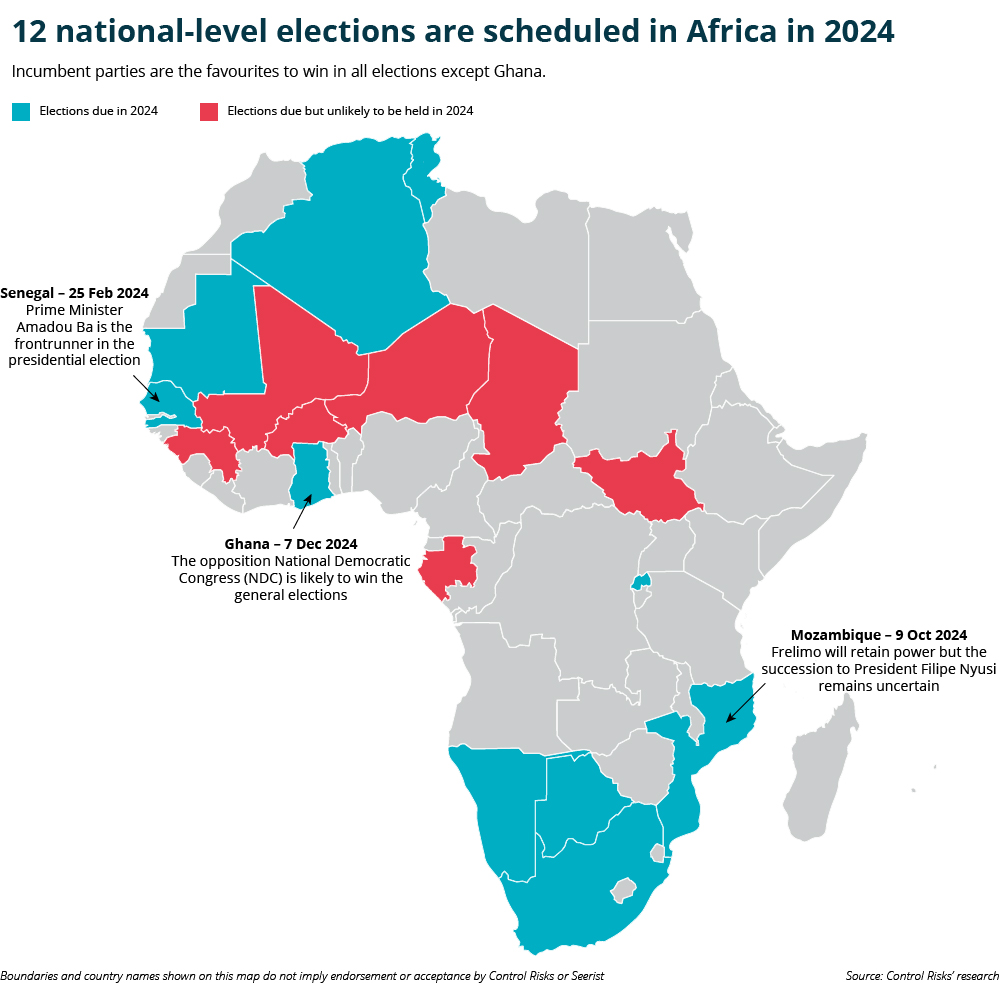The year 2024 marks a defining moment in Africa's democratic journey, with 18 nations across the continent scheduled to hold elections. This surge of electoral activity underscores the dynamic and multifaceted nature of governance in Africa, reflecting both its challenges and progress towards democratic maturity. Amidst a global backdrop of shifting political landscapes, Africa's electoral endeavors stand out, promising to shape the future of the continent in profound ways.
The Electoral Panorama Across 18 Nations
In 2024, the African continent will see a wide array of elections, ranging from presidential to parliamentary and local. These elections span the breadth of Africa, from the deserts of the north to the southern cape, from the Atlantic shores in the west to the Indian Ocean coast in the east. Each country's upcoming election encapsulates its unique political climate, societal needs, and the aspirations of its people.
| COUNTRY | TYPE OF ELECTION | DATE |
| Comoros | Presidential | 14th January |
| Mali | Presidential | 2024 |
| Senegal | Presidential | 25th February |
| South Africa | General | May - August |
| Mauritania | Presidential | 22nd June |
| Rwanda | Presidential and Legislative | 15th July |
| Mozambique | Presidential and Legislative | 9th October |
| Botswana | General | October |
| Chad | Presidential and Legislative | October – November |
| Somaliland | Presidential | 13th November |
| Tunisia | Presidential | 24th November |
| Mauritius | General | 30th November |
| Namibia | Presidential | November |
| Ghana | Presidential and Legislative | 7th December |
| Algeria | Presidential | December |
| Guinea-Bissau | Presidential | December |
| South Sudan | Presidential and Legislative | December |
| Guinea | Presidential | December |
Spotlight on South Africa, Tunisia, and Senegal
- South Africa: Here, the focus is on whether the African National Congress (ANC) can retain its longstanding dominance amid growing public discontent over issues such as economic inequality, corruption, and service delivery. The electoral outcome could signal a significant shift in the country's political landscape, affecting regional stability and economic prospects.
- Tunisia: As the cradle of the Arab Spring, Tunisia's forthcoming elections are pivotal in determining the trajectory of its democracy. The balance between secular and Islamic forces, the role of the military, and the state of civil liberties are key factors that will influence both the electoral process and its aftermath.
- Senegal: Known for its stable democracy in a region often turbulent, Senegal's elections will test the strength of democratic institutions and the electorate's commitment to governance. The outcome could further consolidate Senegal's democratic credentials or expose vulnerabilities needing address.
Conclusions
The elections across these 18 African nations in 2024 are not merely routine political events; they are a litmus test for the continent's democratic resilience and development trajectory. For South Africa, Tunisia, and Senegal, the stakes are particularly high, as their elections could redefine regional power dynamics, influence economic growth, and set precedents for democratic governance. As Africa stands at this electoral crossroads, the world watches, recognizing the continent's growing significance on the global stage.










Trackbacks and Pingbacks